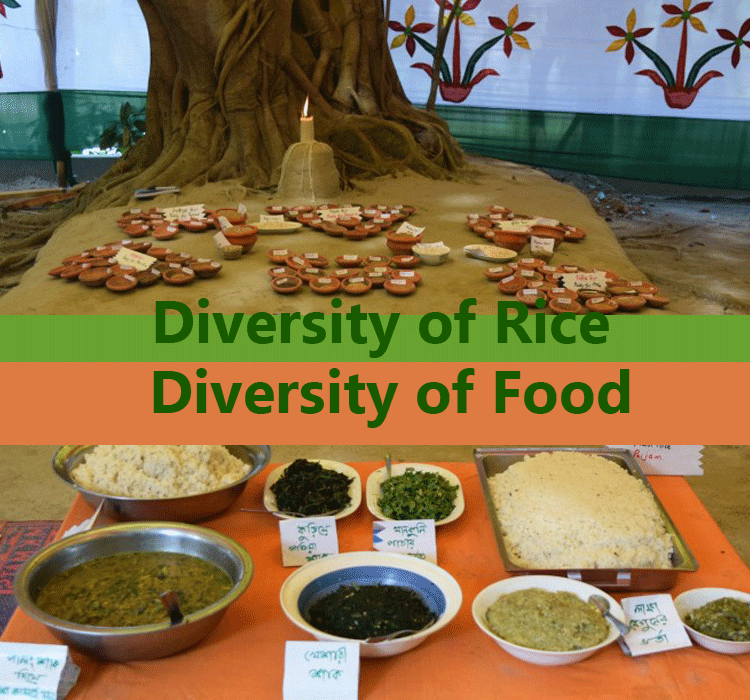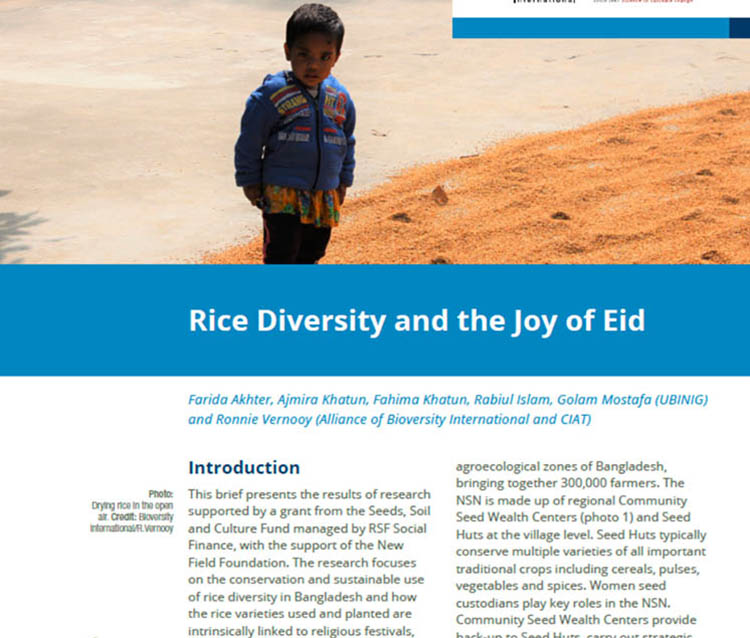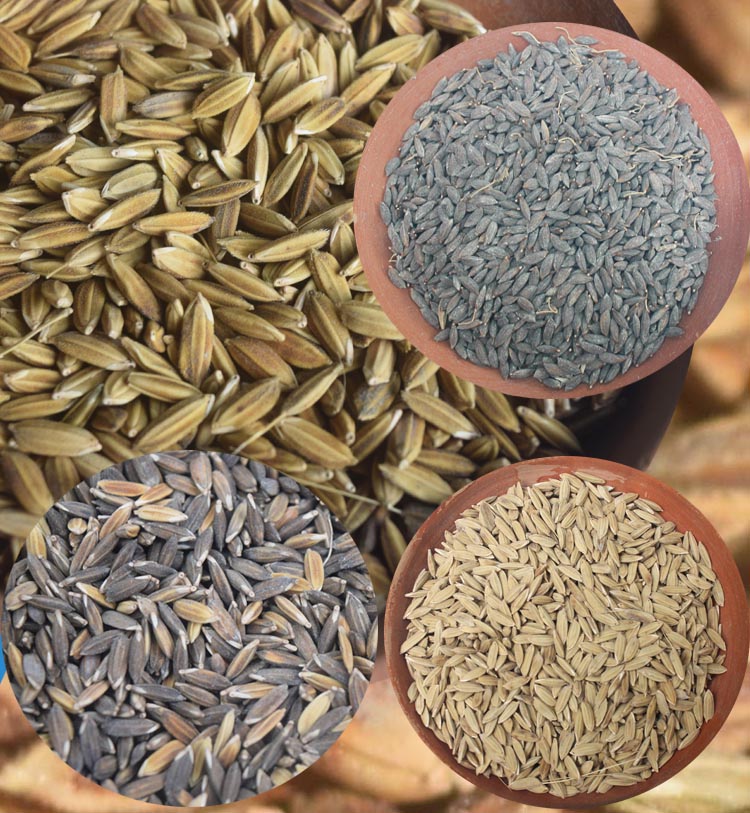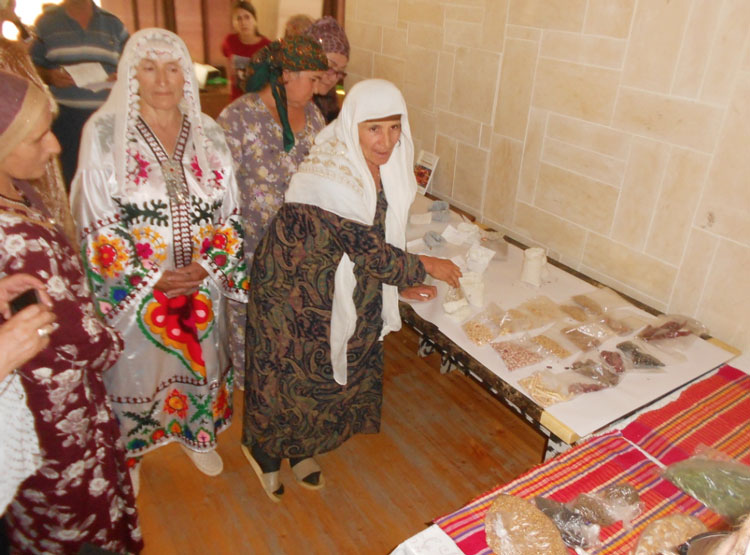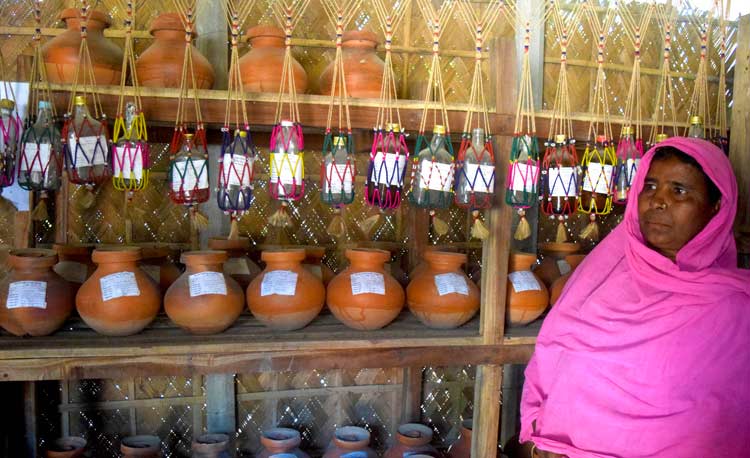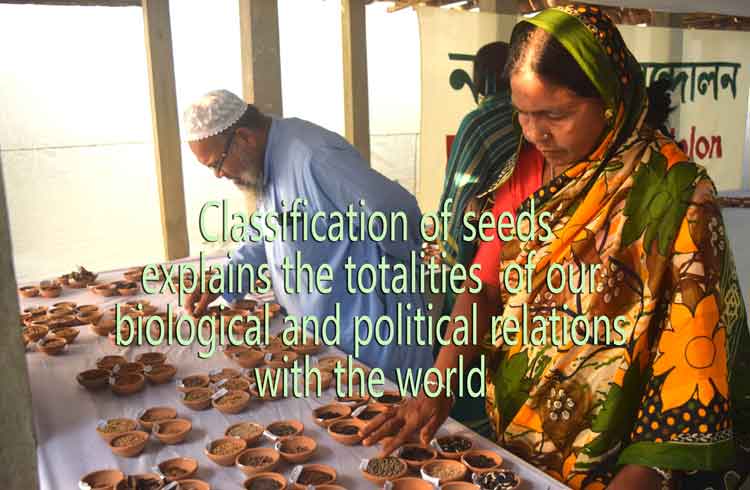Rice Diversity and Food Festival
As seeds play a pivotal role in maintaining biodiversity in our ecology, Nayakrishi farmers’ movement has been emphasizing its role in preserving diversity of seeds through the Community Seed Wealth Centers. Farmers use diverse variety of seeds, particularly of rice, in the daily lives as well as on different religious, social and cultural occasions during a year. So the yearly crop cultivation is planned not only to produce the staple food but also various other food dishes that require special varieties of rice, vegetables, fruits etc. In order to create awareness about it on a broader scale, and also among the farmers, UBINIG and (Read More)
Rice Diversity and the Joy of Eid
UBINIG research on Rice varieties and religious festivals is focused on the conservation and sustainable use of rice diversity in Bangladesh and how the rice varieties used and planted are intrinsically linked to religious festivals, food culture, land morphology and the climate that shape rice farming/cropping in this region. The information was collected from farmers in the villages who have been growing different varieties of rice for different uses of food preparation.
UBINIG has also been running Community Seed Wealth Centers (community seed banks) and the Nayakrishi farmers are managing them in ensuring the conservation of the (Read More)
Diversity in rice and the Joy of Eid
Preserving the diverse varieties of rice is not just an act of conservation; it is for the happiness of the farming families on different cultural and religious occasions. On August 12, Eid-ul-Azha, the second largest religious festival of Muslims, was celebrated across the country following the 10th day of moon of Arabic month of Zilhaj. This festival is marked with slaughtering of sacrificial animals including cows, buffaloes, goats and sheep and few other animals. According to the Department of Livestock Services (DLS) 4.58 million cows and buffaloes, 7.20 million goats and sheep, and a large number of other sacrificial animals were av (Read More)
Awareness, knowledge and capacity building on establishing Community Seed Banks
A training workshop was organised by Zan va Zamin (Women and Earth) and National Republican Centre of Genetic Resources of The Tajik academy of Agricultural Sciences, Tajikistan on awareness, knowledge and capacity building on establishing community seed banks during 21-24 June, 2019 at Sanatorium Shaambari-Saturn, Tajikistan. (Please read full Report in pdf file)
Zan va Zamin is a public organization in Tajikistan operating since 1999 working to guarantee access to the land for the women in rural areas and on preservation of traditional knowledge and (Read More)
Crop variability in Mamudpur Village: richness and diversity
Four Cell Analyses: richness, evenness of biodiversity- Participatory research for estimation of the state of biodiversity of a particular geographical location.
A discussion meeting involving some farmers of Mamudpur and other villages was organized on 16 June, 2019.
Participating farmers:
1. Surya Begum, village: Babupur, 2. Ali Hossain, village: Babupur, 3. Osman Ghani, village: Mushuria, 4. Amena Begum, village: Mamudpur, 5. Rina Begum, village: Mamudpur, Nabiron Begum came from Fazilhati village and participated as an observer.
These farmers have been involved with Nayakrishi for long and have been playing (Read More)
Seed, Agriculture and Life
Summary of the speech of Farhad Mazhar delivered to Nayakrishi farmers on 12 April, 2019 in Ridoypur Biddaghor, Tangail.
Nayakrishi Andolon is now known to the world as a strong farmers’ movement in Bangladesh. Those who work with farmers for preservation of seeds, biodiversity and environment are friends of Nayakrishi. Now people around the world are trying to find ways towards pesticide-fertilizer free agriculture, or ways to rebuild bio-organic foundation of agriculture. The future of agriculture is bound to rely on life-affirming biodiversity-based farming. Everyone understands the simple fact that no one will survive by p (Read More)
Bangladesh: the importance of farmers’ seed systems and the roles of Community Seed Wealth Centers
The Nayakrishi Seed Network (NSN), known as the Nayakrishi Beez Shongho in Bangla, is the active farmers’ network of Nayakrishi Andolon with specific responsibility to ensure the collection, conservation, distribution and enhancement of seeds among the members of Nayakrishi Andolon. Women farmers are the key actors and leaders in the network. Community Seed Wealth Centers are run by farmers as the apex body of the Nayakrishi Seed Network linked with the Seed Huts (known as Beez Akhra) at the village level.
Here is a Policy Brief of UBINIG on farmers seed system supported and published by Bioversity International, a CGIAR Resea (Read More)
Exhibiting Seed as Farmers' Knowledge Practice
Seed exhibition in Lalon festival
The 'Sadhushongo', the congregation of the saintly practitioners of wisdom and intitiated by Fakir Lalon Shah as the "Gour Purnima" festival is an attraction for common people and for farmers. Cheuria, in the District Kushtia of Bangladesh, obtains a festive mood during the three Full-moon days with hundreds of thousands of people coming from all around the country as well as from across the border. This is also an opportunity for the Nayakrishi farmers to invite people attending the festival and demonstrate their art and wisdom of biodiversity-b (Read More)
Farmers caught by credit, but Nayakrishi is immune…
The Bangladesh Bank (B B) has recently expressed concern for defaulting agricultural loans (the Shokaler Khabar 12 March 2014). The B B has also instructed the concerned scheduled banks to take effective step for reducing the defaulters in agricultural loans. The defaulted farm loan in the banking sector had increased by 44 percent as of January 31, 2014 from the same date a year ago.
The situation of much acknowledged microcredit is not so different from agricultural loan. A BBC report said, in Bangladesh poor people are selling organs as a last resort to repay their microcredit debts. The report said:”Kalai, like many other (Read More)
Agriculture in Copenhagen COP 15: much to do about biodiversity-base
During 7 to 18 December, 2009, the world leaders from 192 countries will meet in Copenhagen, Denmark to negotiate an agreement at the COP 15 of the UNFCCC to keep global temperatures below catastrophic levels. The Conference of the Parties (COP) to the United Nations Framework Convention on Climate Change (UNFCCC) was adopted in 1992 as the basis for a ‘global’ response to the problem. The COP 15 conference claims that the ultimate objective of the Convention is to stabilise greenhouse gas concentrations in the atmosphere at a level that will prevent disastrous human interference with the climate system.
Various studies (Read More)
